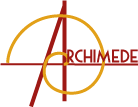Abstract
Title: Quotation practices and the co-construction of scientific discourse in Seneca’s Naturales Quaestiones (Books II and III)
This article aims to clarify the role that the practice of quotation plays in the transmission of scientific knowledge operated by Seneca in the Naturales Quaestiones. In fact, the practice of quotation is a tool of textual transmission which, in Antiquity, could take many forms. However, in the case of the Naturales Quaestiones, it seems to be based on particularly significant invariants. Indeed, Seneca is careful to base his demonstration on poetic quotations, most often from Virgil or Ovid. Although this phenomenon was not isolated in the field of the natural sciences in Antiquity, analysis of the Senecan practice of quotation can yield particularly fruitful results, revealing different strategies for the transmission of knowledge (appropriation, inspiration, opposition). Nevertheless, Virgil and Ovid are not the only poets to be summoned, and Seneca is also careful to quote a line from a poem by his addressee, Lucilius. The place of the latter, which has been too often underestimated, must, in our opinion, be more finely studied, to reveal his role as an actor of the discourse. This co-construction of knowledge ultimately serves to defend the Stoic physical tradition, a doctrine that seems, if its fundamental dogmata are not called into question, to give absolute freedom to aspiring philosophers
Keywords: Seneca, physics, quotation, poetics, Lucilius, stoicism.




